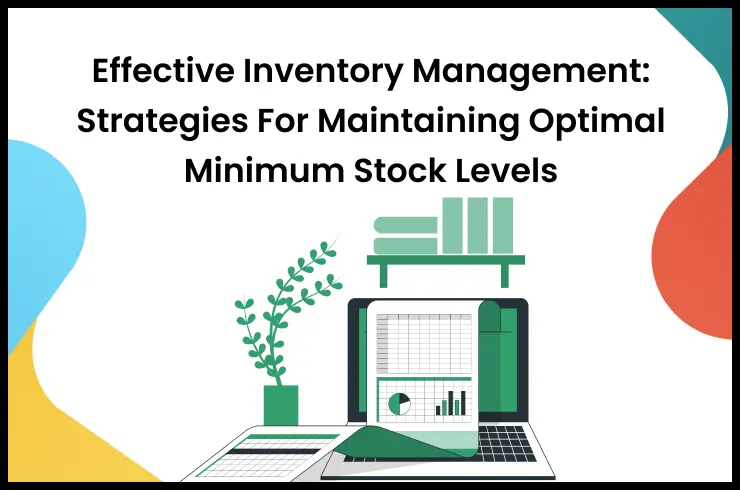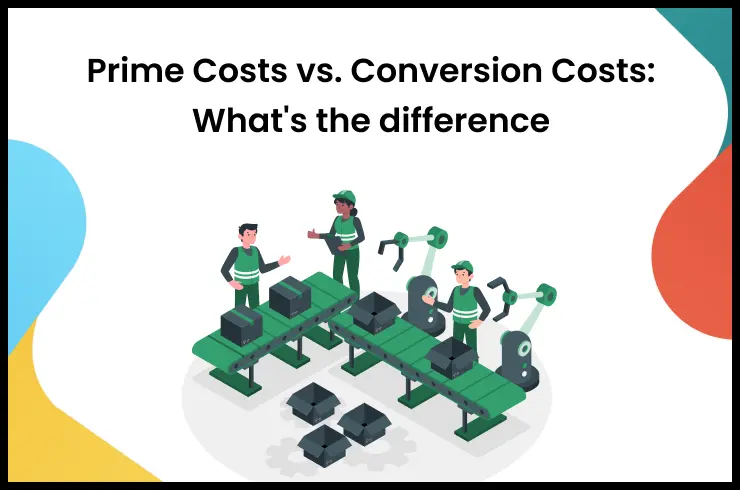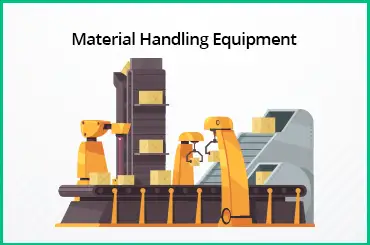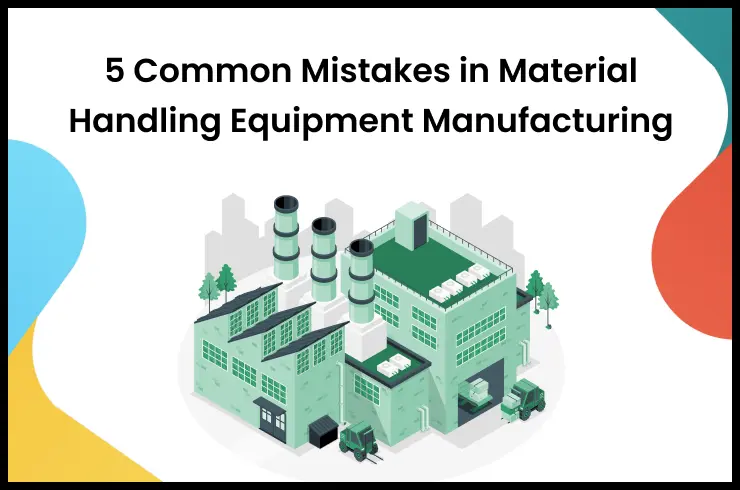Agile manufacturing is an advanced manufacturing approach that prioritizes quickly responding to customer demands and making consumer-specific products. Earlier, lean manufacturing was used to reduce waste materials during production and cut manufacturing costs. This technique is considered beneficial in several industrial segments even today.
However, due to changing user demands, manufacturers need to adopt new manufacturing techniques and strategies that are user-centric and that's where agile manufacturing works best. It is a great way to bring more customers to your business, win the market, and enhance brand popularity.
In this article, we have discussed key concepts such as agile manufacturing techniques, principles of agile manufacturing, and the difference between agile and lean manufacturing. Read further to learn more about it.
What Is Agile Manufacturing?
Agile manufacturing is a methodology used to manufacture products that quickly meet customers' expectations. In other words, this manufacturing technique focuses on making products perfect for modern-day requirements and rapidly changing customer demands.
In today's market, customers prefer personalized products more than ordinary ones. This is where agile methodology comes in as it meets customer demands while ensuring that the manufacturing cost is minimal and product quality is high.
With agile manufacturing, local manufacturers can see growth in their businesses, and this is a proven technique to compete with offshore companies. Your business can incorporate an agile framework and follow agile manufacturing techniques to increase customers' interest in your brand.
What Are the Key Characteristics of Agile Manufacturing?
There are four characteristics of agile manufacturing. They are - flexible product design, information technology, a highly functional supply chain, and employee knowledge. These four characteristics ensure the proper implementation of agile manufacturing methodology and successful production requirements. Below we have discussed these four characteristics and why they are important.
Flexible Product Design:
One of the main features of agile manufacturing is to produce customized products. Consumers prefer more personalized and unique things today, than they used to earlier so focusing on the uniqueness of style and features becomes necessary for that. The more agile your organization's working process would be, the more it will produce unique products as per customers' choices adding to the bottom line.
Information Technology:
Catching the attention of existing and potential customers is the basic need for companies where agile manufacturing plays a crucial role. It ensures products are manufactured and made available to customers quickly. And, for that, the right information, spontaneous information flow, and quick access to technology are vital. Upgradation of this technology can help your business move one step further from others as it will enable fast response to orders, along with fast delivery.
High Functional Supply Chain:
Another crucial feature of agile manufacturing is a highly functional supply chain. From production workers to salespersons, all the intermediate workers of the supply chain are responsible for smooth goods supply to the market. You can also say that when there are enough high-quality products made in shorter times suppliers can reach more customers. Best quality also leads to reordering and retention of customers.
Employee Knowledge:
Knowledge is a vital factor when technology is continuously running forward. Accurate employee training must be given. Adequate knowledge about agile manufacturing systems, processes, technologies, information, and the right skills to understand current market trends, and adaptations are what make employees able to work appropriately in an agile work system.
Principles of Agile Manufacturing
The four key principles of agile manufacturing are described below:
Iterate
Fast iteration is one of the most important principles and the core strategy of agile manufacturing. It means producing more and more products with different feature combinations. It focuses on production quantity as well as value. Since each product has its own strengths and flaws and by offering several options to the customers the company can easily understand customers' preferences and trends and develop the next productions respectively. It leads to more customer engagement as well as perfection.
Flexibility
Flexibility makes an organization adaptable to market volatility. People's tastes are changing like never before and demand for new products is increasing. Sometimes market disruptions and labor rates result in volatility.
In this scenario, manufacturing companies need to be flexible enough to adjust to the changing rhythm and alter their system to bring something new always. Also, the market is becoming more competitive day after day. Rather than sticking to traditional methodologies, adapting to new ideas can make organizations strong in competitive environments.
Bottom-up Planning
Bottom-up typically means going reverse. Traditional business planning and procedures are reversed in the case of agile manufacturing. While traditionally, businesses used to set a whole plan, start working on it and get to the detailing at the last stage.
On the other hand, agile manufacturing methodology focuses on detailing at first and eventually developing the final product. Bottom-up planning leaves more room for correction as you can make small changes in steps whenever you get more information or find out about a new trend in the market. Not only that but it cuts the number of waste materials as well as manufacturing costs.
Augmentation
Augmentation brings betterment to the process and serves as a fundamental principle of agile manufacturing. An industry that wants to be agile needs to apply this principle which involves including new machines, processes, techniques, and even new employees. This is more crucial when the motto of the organization is to introduce new products every time. Appropriate tools and techniques enable employees to perform better whereas employing new workers adds strength to the manufacturing unit, cuts down production time, and better overall growth is possible.
Advantages of Agile Manufacturing
Agile manufacturing is a methodology that provides numerous benefits to the manufacturing industries, the market, and consumers. Here are some of its advantages:
High-quality and customized products
Agile manufacturing focuses on producing goods based on changing market demand, which results in more customized products. The agile work culture is flexible and adaptable, and when a company employs agile manufacturing, it ensures that all its principles are followed rigorously. As a result, product quality is ensured, and the company takes care of whether consumers are satisfied with their products or not. With more and more companies adopting this methodology, you can expect to see more consumer-based products in the market.
Reduced production time
Time is a critical factor in any business. Agile manufacturing effectively reduces production time by encouraging the employment of new workers, providing them with proper training, empowering them with new tools and technologies, and always being attentive to new information.
Improved product perfection
As society moves toward having high-quality products, agile manufacturing acts as a savior for manufacturers. This technique follows a bottom-up principle where detailing is given top priority, and the product is developed gradually. More product forms are offered to the market, and criticisms are used to improve the product continually.
Increased brand value
When manufacturers make suitable products for each customer's demand and produce them quickly, they become more popular with customers. This increases their brand value. Working with this method helps businesses gain a greater customer base, resulting in more business and trust.
Agile Manufacturing vs Lean Manufacturing
Agile and lean manufacturing both ensure that the end product is of high quality. Moreover, both methods are planned in such a way that production costs can be reduced or do not exceed expectations. But how are both methods different? Agile manufacturing is a newer approach that focuses on flexibility and rapid response to changes in the market or customer needs. It emphasizes the use of technology, cross-functional teams, and collaboration to quickly design and produce products. Agile manufacturing places a strong emphasis on customer satisfaction and is often associated with the concept of "mass customization," which means producing products tailored to individual customer needs.
On the other hand, lean manufacturing is a more established approach that focuses on eliminating waste and improving efficiency in production processes. Lean manufacturing seeks to create a culture of continuous improvement and teamwork to achieve higher-quality products, reduce lead times, and lower costs.
While both Agile and Lean Manufacturing aim to improve efficiency and reduce waste, they differ in their approaches to achieving these goals. The difference between agile and lean manufacturing is that agile manufacturing is more focused on flexibility and responsiveness to customer needs, while lean manufacturing is more focused on standardization and continuous improvement.
How Does an Agile Manufacturing System Work?
Agile manufacturing is different from traditional manufacturing in terms of planning and execution. Instead of having a rigid plan for making a product in one go, agile manufacturers believe in the modular production system, where the work is divided into parts. Here is an example to better understand the process:
Suppose you have a 5-day car project. Traditionally, you might create a detailed plan to make a high-end car that will perform well in the market. However, with agile manufacturing, you divide the project into smaller, achievable goals, such as producing one car in 1.5 days, according to customer demand. This allows you to work on improving the strengths and weaknesses of each car, resulting in a better end product.
Agile manufacturing companies use efficient techniques and technology to work. The use of technology enables seamless information flow and sharing among the production team, sales teams, customer services department, and the warehouse in charge. This ensures there is no miscommunication related to inventory information, production capacity, requirements, or any other aspect.
Cloud-based software programs can be used to plan according to changing market orders, and reduce downtime costs, and lead time, ensuring fast delivery. Product design and prototyping are critical aspects of agile manufacturing, and various software programs are used to create unique designs that can win customers' hearts by offering them exactly what they want.
Achieve Business Growth With Agile Manufacturing
Agile manufacturing is a modern manufacturing methodology that enables companies to produce custom-built products quickly. By implementing the principles of agile manufacturing, companies can ensure they keep up with market demands and stay ahead of their competitors.
TranZact is a cloud-based automation software that helps you to optimize your manufacturing business and implement agile manufacturing. With its capabilities, you can bring complete digital transformation to your SME business and manage all core processes seamlessly!
FAQs on Agile Manufacturing
1. What are the 4 principles of agile manufacturing?
The four principles of agile manufacturing are iteration, flexibility, bottom-up planning, and augmentation. These principles help the agile method to provide a responsive approach to changes in the market while emphasizing teamwork and customer satisfaction.
2. What is an example of agile manufacturing?
A popular agile manufacturing example is Dell, a computer-making company that revolutionized the industry by offering custom-built computers. By adopting the principles of agility, Dell prioritized implementing new technology and ideas to continually improve their product quality. As a result, Dell quickly gained a competitive advantage and became a leading brand in the computer industry.
















